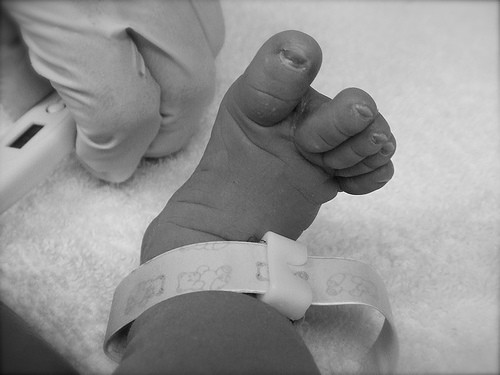
Nature of birth influences a baby's growth. Emphasizing this point, a new study says that being born via caesarean section (C-section) increases risk of obesity in children.
The study published in PLOS ONE found that there is 26 percent greater risk of putting on unnecessary weight in adulthood that is associated with C-section delivery compared to normal vaginal birth.
The study included 38,000 people as a part of 15 studies, conducted in 10 countries. Adults born via C-section had half a unit more body mass index (BMI) than people who had a vaginal birth. BMI is a number calculated from a person's weight and height, to measure body fat.
Though the study could find a direct link between obesity and C-section, researchers said that they couldn't prove that the occurrence is solely caused by C-section.
"There are good reasons why C-section may be the best option for many mothers and their babies, and C-sections can on occasion be life-saving too. However, we need to understand the long-term outcomes in order to provide the best advice to women who are considering caesarean delivery," Professor Neena Modi from the Department of Medicine at Imperial College London, said in news release. "This study shows that babies born by C-section are more likely to be overweight or obese later in their life. We now need to determine whether this is the result of the C-section, or if other reasons explain the association," she added.
Researchers, while explaining their findings, said that the type of birth alters healthy bacteria in the gut, that can influence a child's weight and growth. "There are plausible mechanisms by which caesarean delivery might influence later on the body weight. The types of healthy bacteria in the gut differ in babies born by caesarean and vaginal delivery, which can have broad effects on their health. Also, the compression of the baby during vaginal birth appears to influence which genes are switched on, and this could have a long-term effect on metabolism," researcher Dr Matthew Hyde explained.
Though recovery takes longer in C-section birth, many women adopt this method, either due to the fear to giving birth naturally or for convenience. Efforts have been going on to find out the hidden risks involved with a C-section birth.
Similar to the current study, a 2012 study conducted by researchers from Boston Children's Hospital in Massachusetts found that children born via C-section gained unnecessary weight by the age of three. C-section could be affecting bacteria in the gut causing major changes in food digestion procedure, according to the findings published in the BMJ journal Archives of Disease in Childhood.
Apart from these, previous studies have shown that C-section can affect child's intelligence levels too. Scientists found that vaginal birth activated a protein in the brains of newborns - mitochondrial uncoupling protein 2 (UCP2) that helps brain development in adulthood. This protein was found weak among the babies born through caesarean.
There also exists solid evidence to show that caesarean babies are more prone to allergies. Researchers found that C-section babies had microorganisms in the gastrointestinal tract that increased production of Immunoglobulin E (IgE), antibodies produced by the immune system as an overreaction to allergens.













